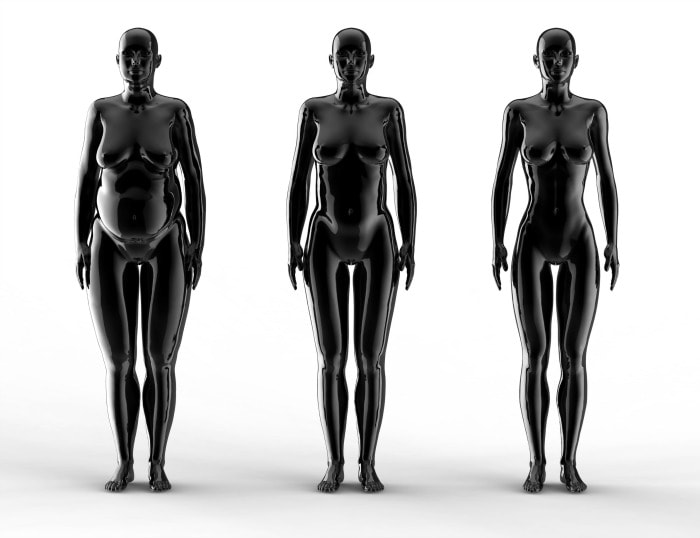Weight Loss and Menopause: A Changing Body Means Changing the Rules
As she nears and passes through menopause, a woman’s shifting hormones impact many weight-related processes, like how food is metabolized, how muscle is created, and how sleep patterns change. The old weight-loss rule of more calories burned than taken in still holds true, but post-menopausal women, as well as those transitioning through menopause, should consider the following information to optimize their weight-loss efforts.
EVEN GOOD SUGARS AREN’T SO GOOD
Declining estrogen contributes to insulin resistance, which means certain cells can’t absorb sugars as easily as before. As a result, the body must produce more insulin to aid the absorption process. Understandably, foods with higher concentrations of sugar make the body produce higher levels of insulin. Over time, the body becomes, even more, insulin resistant – creating a vicious cycle. Blood sugar fluctuations also impact appetite and energy levels that can lead to poor food choices and less motivation to exercise.
Consequently, reducing sugar intake is vital for peri- and postmenopausal women. However, decreasing simple sugars – like those found in cakes, cookies, white rice and white breads– is not enough. Complex carbohydrates that have high sugar content – like sweet fruits and high-starch vegetables – should be reduced to minimize the spikes in blood sugar that increase demands insulin. Eating fruits like berries, apples, and pears, as well as low starch veggies, will help stabilize blood sugar levels and combat insulin resistance.
GOOD SLEEP IS CRUCIAL
Living on too little sleep seems to be common among Americans, but for anyone trying to lose weight, getting good sleep is imperative. Menopause, however, makes sleeping a challenge. Hot flashes and night sweats are the number one complaint from women transitioning through menopause and these symptoms commonly disrupt sleep. Progesterone, which also diminishes throughout menopause, is considered a sleep-promoting hormone and declining testosterone is also associated with poor sleep quality.
Research now conclusively links poor sleep and weight gain. The culprits are two important hormones: leptin, which suppresses food intake as well as stimulates energy disbursement, and ghrelin, which stimulates not only appetite but also fat production. However, these hormones don’t stay at proper levels in people who get less sleep. So, less sleep means LESS leptin (less appetite suppression and less calorie burn) and MORE ghrelin (more hunger, more fat). In order to make weight loss easier, peri- and postmenopausal women must make it a priority to regularly get a good night’s sleep.
MAKING MUSCLE, FIGHTING FAT
It’s fairly common knowledge that muscle tissue burns more calories than fat tissue does. This makes muscle mass a key factor in weight loss. But menopause has an adverse effect on muscle mass. The sex hormone testosterone (yes, it’s found in females) is important in building muscle but decreases as much as 50 percent between a woman’s 20s and 40s. This means it will take more strength training to maintain the muscle mass of younger years. Otherwise, existing muscle mass will diminish, along with its fat-burning properties.
Duration of exercise should change for peri- and postmenopausal women as well. Declining estrogen and progesterone have decreasing ability to counteract the negative impact of cortisol, which is released in larger doses during longer periods of more intense exercise. But shorter duration (30 minutes or less) of higher intensity exercise raises the levels of other hormones that work with cortisol to burn fat and help promote muscle mass.
WHITTLE THAT WAISTLINE
The most important and alarming weight-related change associated with menopause is WHERE fat is stored. Declining estrogen results in less fat deposits on thighs and backside and more belly fat. In a recently published study, women with belly fat who had a normal weight had a 32 percent higher mortality rate than the obese women in the study.
That’s because belly fat (visceral fat) produces toxins that wreak havoc on insulin metabolism. This insulin resistance, in turn, is associated with high blood pressure and high cholesterol, which are linked to cardiovascular disease – the second leading cause of death in women 45 to 64. Visceral fat is also associated with breast cancer and gall bladder disease.
YOU CAN DO IT!
Although women ages 40+ face more challenges when trying to lose weight, due to shifting hormones, the health benefits of getting to and maintaining a healthy weight are more important than ever. Reducing high-sugar foods, participating in 30-minute sessions of moderately intense exercise, and increasing muscle-building activities will help offset the effects of hormone loss on your dieting efforts. And restoring waning hormones through safe hormone replacement therapy can also help smooth the road to weight loss. For more information on hormone replacement therapy contact New Day Vitality


